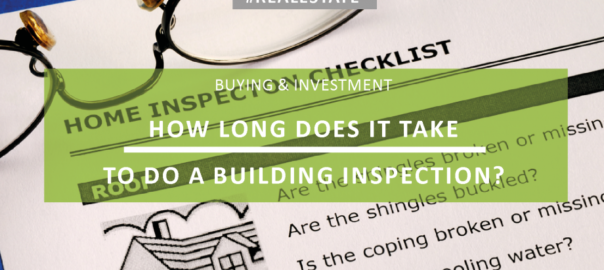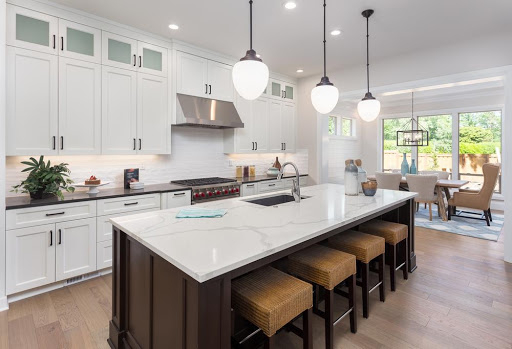How do you avoid making poor choices and ensure a positive selling experience, while also achieving the best sale price possible?
Learning from other people’s mistakes is a great place to start and these eight blunders are all too common:
1. Choosing an agent for all the wrong reasons
Choosing the right real estate agent is paramount to a successful selling experience. But deciding who to use based solely on the commission they charge or your familiarity with them can be a big mistake.
A reduced commission may be tempting but as with anything in life, you often get what you pay for!
Similarly, using a friend or relative in the industry might put a strain on the relationship if they are not familiar with your area or property type.
Instead: Go for a widely acclaimed, experienced real estate agent that you trust.
Interview a few different agencies and look for someone who is honest, prepared, makes you feel at ease, has a good track record in your suburb and is a great negotiator. Learn more about our Naked Agents here.
2. Don’t micro-manage your agent
It makes it very difficult for the real estate agent when sellers don’t allow them to do their job.
Of course you should have a say in the marketing strategies in use, but be prepared to take their advice on board – after all, you are paying them for their expertise.
If you don’t want to pay for any advertising it could really inhibit the sales campaign, and prevent a great agent from selling your property at the best possible price.
Instead: When you are working with an agent you trust you will value their advice and know that it is coming with the best intentions and experience behind it.
Discuss costs, strategies and accountability with them upfront, and then let the agent do their job properly.
3. Being half-hearted
If you are putting your property on the market just to see if you get a bite, then it is likely going to be reflected in how many buyers actually take the bait.
It also stands to reason that your agent will have the same attitude.
Instead: Decide and commit.
If you definitely are ready to sell than it means that you are ready to do the hard yards of finding a great agent, committing to the marketing process and preparing your house to be on show.
4. Leaving the research up to your agent
A real estate agent has access and experience that makes their opinion very valid but don’t let that be the beginning and end of the story.
Use it as the starting point but don’t rely on your agent for all of your information and market date.
Not only could this lead to disappointment with the price they advise, it gives the agent all the power to make and influence your decisions.
Instead: Do your own research when you are preparing to sell your house.
Start looking at other properties that are for sale in the suburb and what they are listing and more importantly selling for.
This will help you be more realistic when you are discussing prices with your agent and also set your expectations.
5. Revealing that you’re desperate
Buyers seem to be able to sniff out desperation from a mile off and they are all too willing to pounce on it with a cheeky offer.
Some common indicators that all is not well in the vendors’ camp include continually lowering the asking price, and putting your house on the market without quality photos or a tidy street appeal.
As investors, we know that first impressions count and an unattractive curb appeal shows that you’re disinterested in your asset, which can lead buyers to wonder whether the property has other maintenance issues you haven’t addressed?
Instead: Improve your chances at getting a high offer by properly preparing your property for market.
This means allowing time to find the best agent, waiting for good weather for quality photos, gathering market research and if your budget allows it, staging.
Most of all, remember that you don’t need to reveal your reason for selling to any buyer, so just keep it simple and say you are relocating.
6. Selling as-is
While adding a new kitchen for the sake of selling is not always budget friendly and could put you in danger of over-capitalising, foregoing basic tidiness is not an option.
There is a lot you can do to improve the presentation of your investment when you’re selling, without spending a bucket load of money.
Remember: buyers want to be able to imagine themselves living in the house or renting it out to interested tenants, so give them every opportunity to do just that.
Instead: Spend some time cleaning, tidying, repairing, neutralising and staging before you put your property up for sale – ask your agent for his/her opinion on what needs to be done. Check out our blog on Property Presentation for more advice.
If the property is tenanted to less-than-tidy residents, you could even consider paying for a weekly cleaner prior to open inspections so that the property presents in its best light.
7. Ignoring early buyers
We want to believe that an offer will come along and blow us away but the reality is, offers above market value are very rare.
Did you know that the best prices are often achieved in the first weeks of the house being on the market?
The further the sale campaign extends, the more leverage buyers have, as they know the vendor is getting tired of waiting for a sale.
As a result, one of the first questions a buyer usually asks is, “How long has it been for sale?”
Instead: Do the hard work up front with your agent to determine a fair price to put it on the market.
Get the word out about your house and then be prepared to make a quick decision when offers start coming in.
Or if suitable, stage an auction campaign so you can be assured of achieving the best price the local market can support.
8. Covering up problems
Painting over the water damage instead of fixing it might be a good short-term solution to making the house presentable for showings, but it can work against you when buyers start to get serious.
If a buyer notices an issue like that, they quickly become suspicious about other problems the house might have and could decide against making an offer.
Instead: Repair problems properly or be upfront about ongoing issues.
No house is perfect and most potential buyers are willing to negotiate around minor problems.
Selling your investment property can be a demanding time, but if you go in prepared (and with a realistic idea of recent suburb selling prices), you can streamline the process and avoid extra stress.
While there will always be a lot of unknowns when it comes to selling property, whether its in your neighbourhood or located interstate, many variables can be minimised by avoiding these issues and working with an experienced agent.
If you would like to discuss your property needs with a Naked Agent, call us on 08 6254 6333














